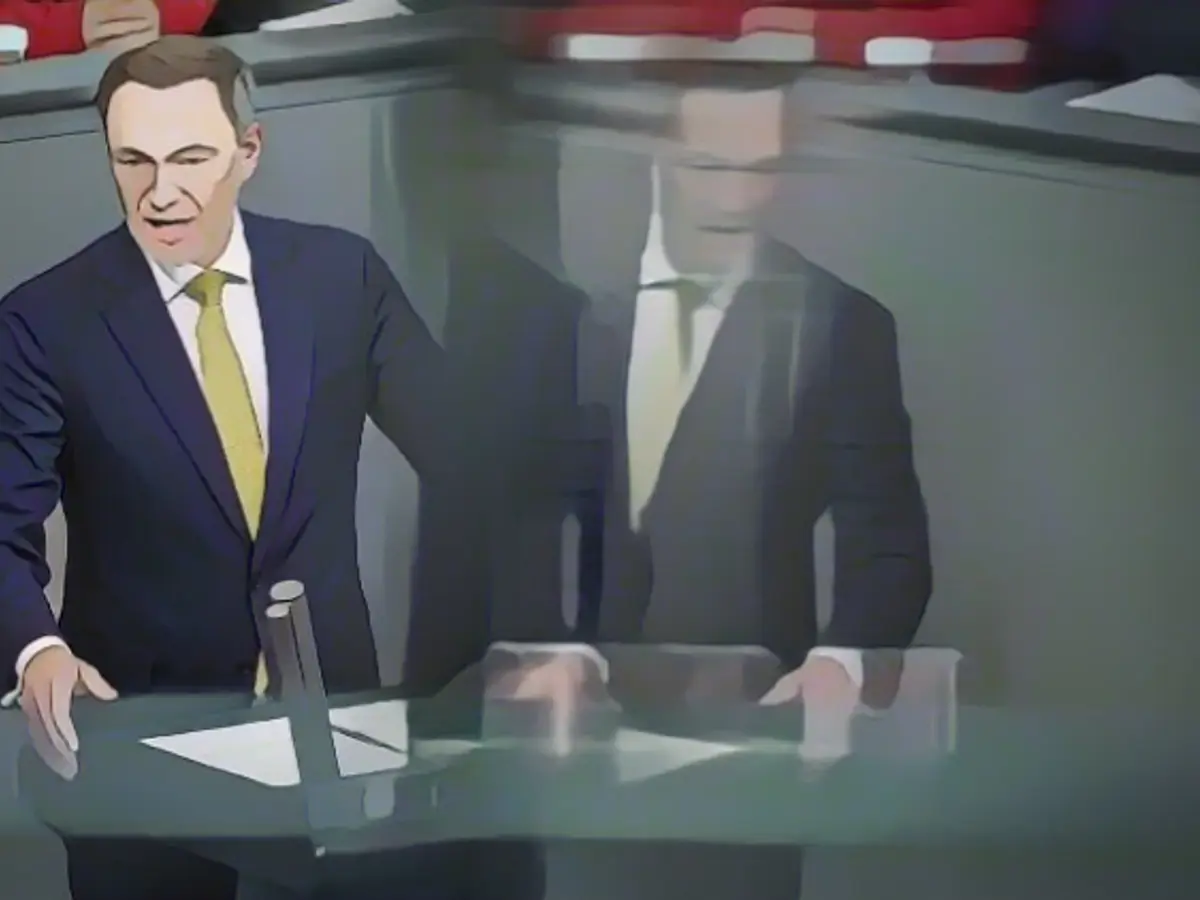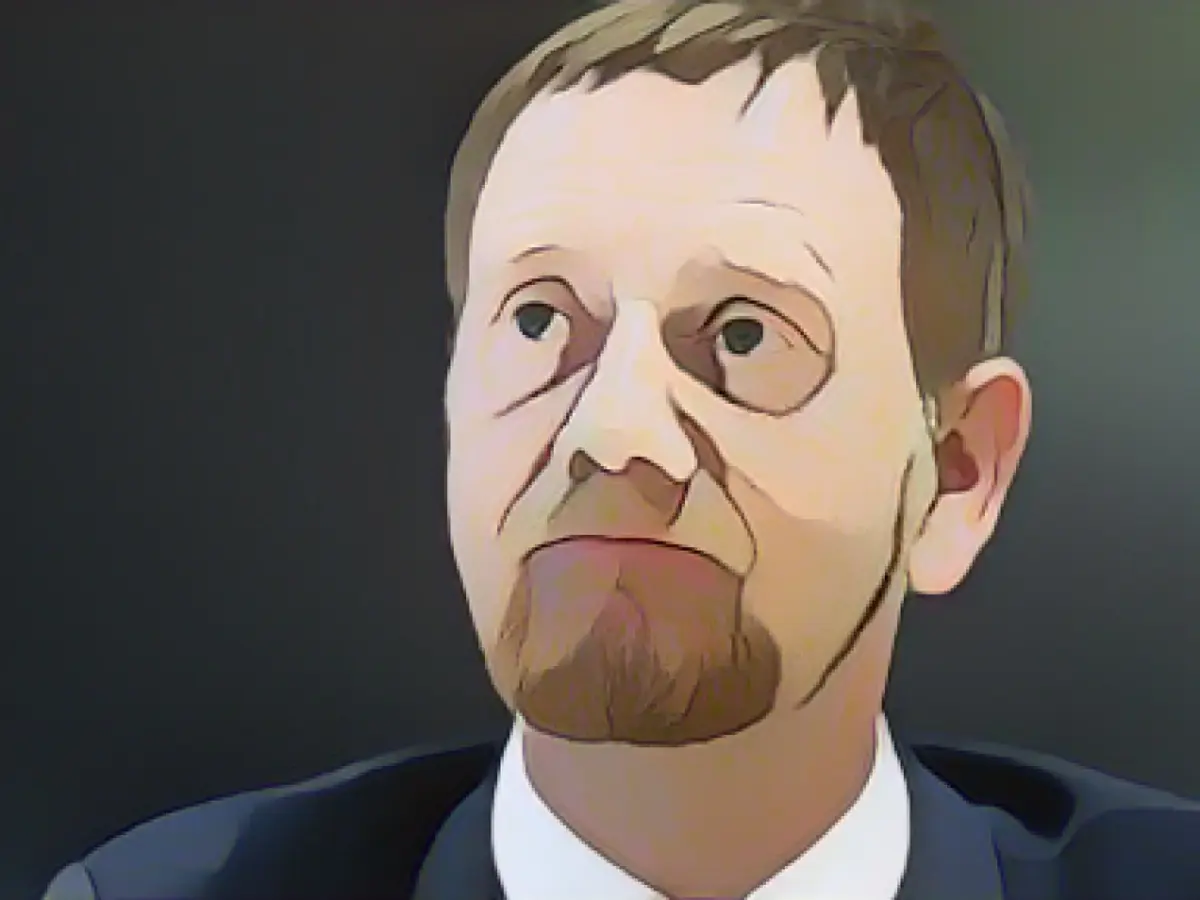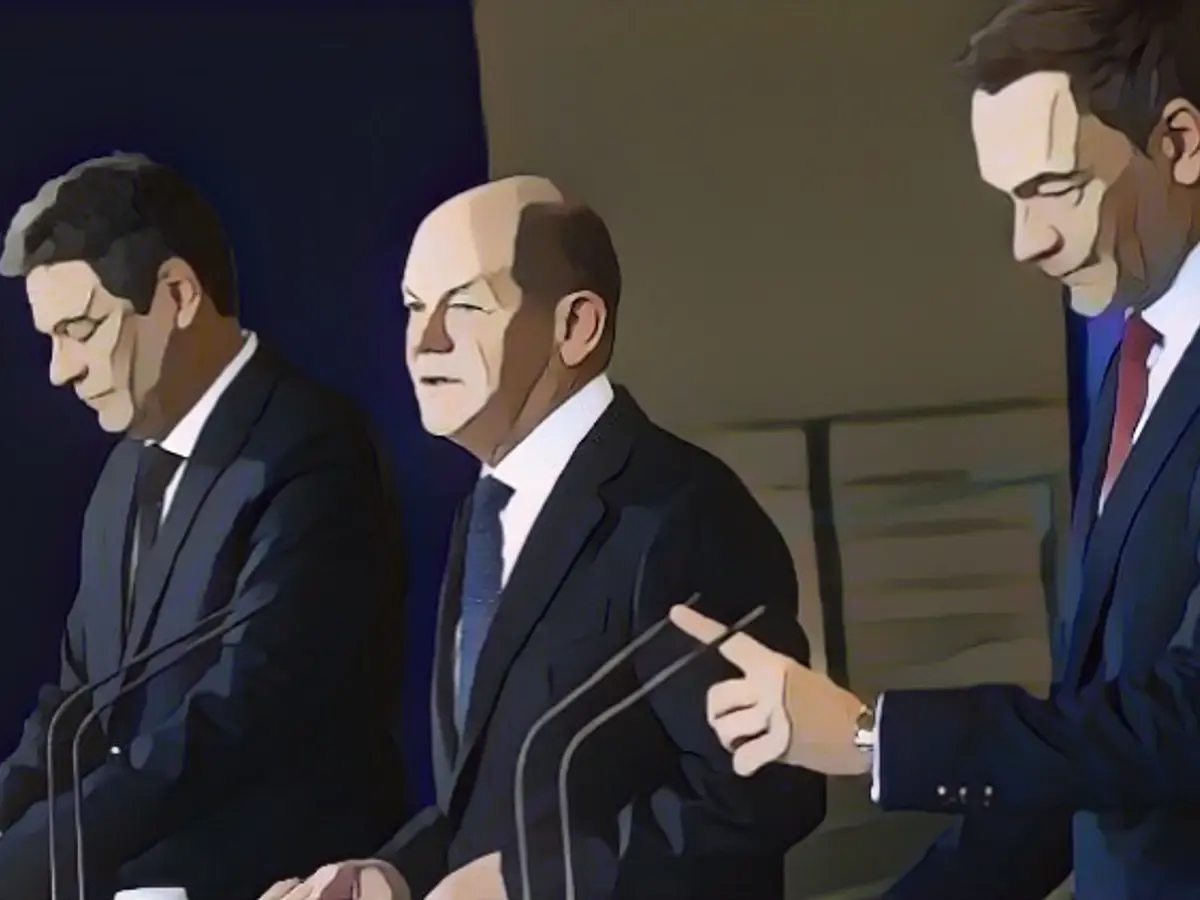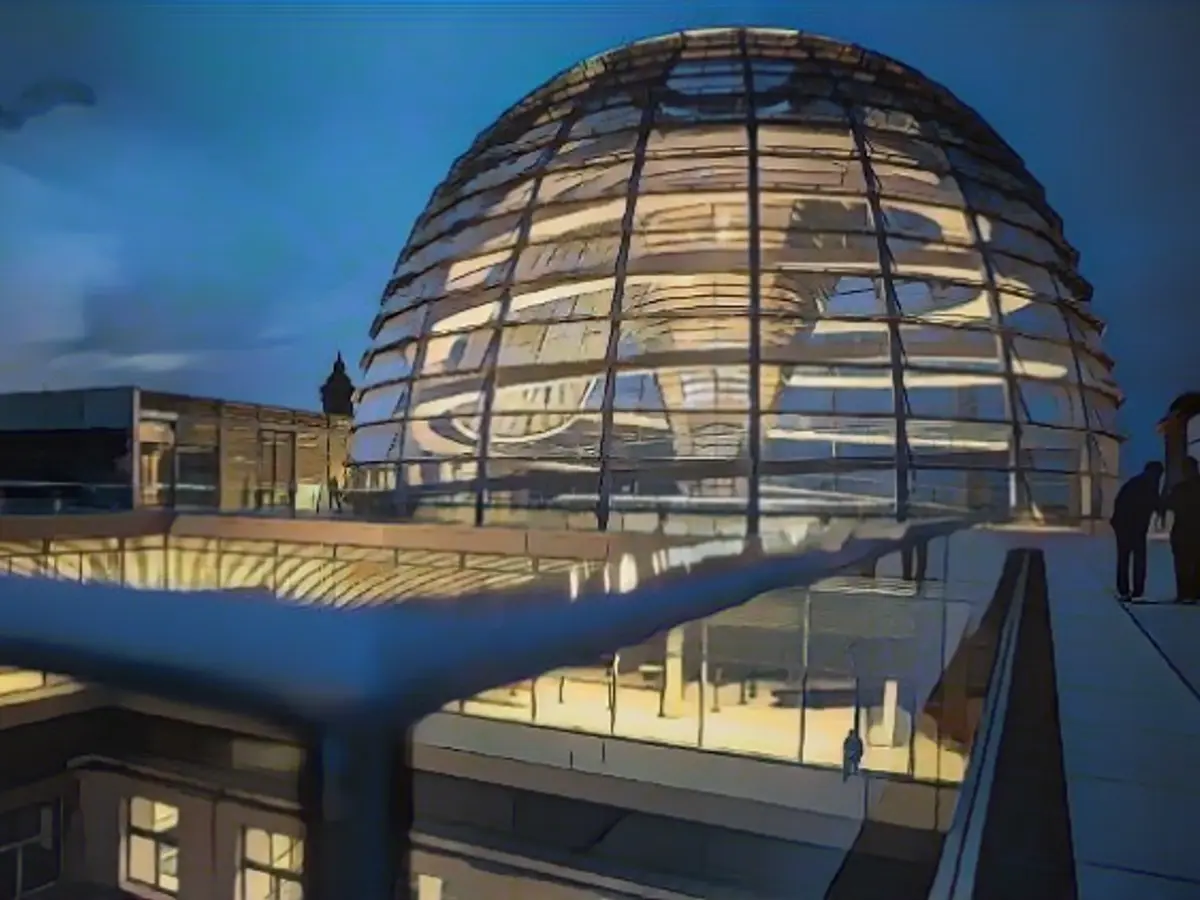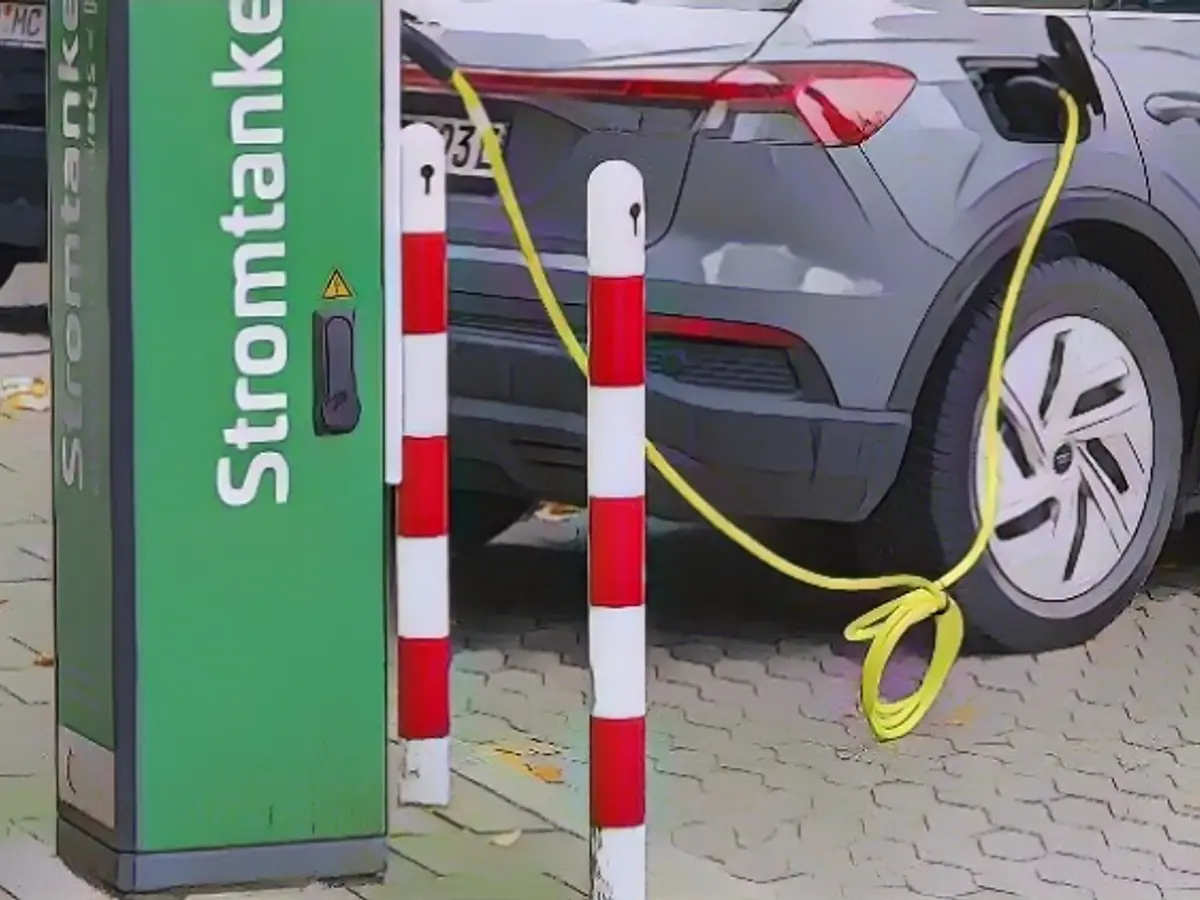Financing Matters: Lindner Holds Firm on Debt and Taxes
In the ongoing discussions on budgetary consequences following the Karlsruhe ruling, German Finance Minister Christian Lindner reiterates his stance against tax hikes. The time for such talk, according to him, is not now but during the 2025 federal election campaign. This remark came in response to SPD leader Lars Klingbeil's call for tax increases post the budget ruling, which questioned the coalition agreement's adherence to the debt brake and tax cuts.
Lindner is unwavering on his position that the state should maximize its use of existing resources rather than resort to tax increases. He refers to the debt brake as "a red line" for his involvement in the 'traffic light' coalition, emphasizing the importance of lowering the country's debt level. Lindner's firm stance on no-tax increases remains unchanged, even after 2025.
The 2024 budget will face minimal impact due to the Karlsruhe ruling, according to Lindner. The higher interest payments on the economic stabilization fund for 2024 amount to 2.5 billion euros. Despite an overall 17 billion euros spending requirement in 2024, Lindner claims that only a portion is linked to the ruling, with reasons varying significantly.
Private Capital Mobilization
Downplaying the effects of the Karlsruhe ruling, Lindner proposes seeing this as an opportunity to mobilize private capital, rather than complaining about less financial aid, subsidies, and investments. He suggests that the 60 billion euros deleted from the fund will still be available by 2027.
Manifesting his dedication to the debt brake, Lindner highlights how the principle holds politicians responsible for managing the money citizens contribute to the state. By doing so, he emphasizes the need to apply these high revenues more effectively to policies, rather than conducting tax increases.
Grand Coalition vs. Traffic Light
The potential absence of the FDP in the coalition would lead to a grand coalition between the SPD and the CDU/CSU, according to Lindner. He questions the merits of such a coalition, citing historical problems such as mishandlings of migration, climate change, and the armed forces. He disagrees that this could be a more suitable arrangement for the country, preferring the current 'traffic light' coalition.
Insights
Lindner's commitment to the debt brake and opposition to tax increases, stemming from his time as part of the Free Democratic Party in the 'traffic light' coalition, was characterized by the following:
- Debt Brake:
- Fiscal Discipline: Lindner advocated for fiscal discipline, urging the preservation of the debt brake to protect future generations from inheriting financial obligations.
- Reluctance to Relax Norms: Lindner was skeptical of any attempts to relax the debt brake within the coalition, creating tension with his partners.
- Constitutional Validity: Lindner employed various strategies to maintain adherence to the debt brake, including hiding potential overspending details and commissioning expert opinions on the rule's constitutional validity.
- Tax Issues:
- Tax Cuts: Lindner supported tax cuts to boost competitiveness, but the associated costs were significant, risking an oversized hole in the federal budget.
- Criticism of Coalition Partners: Lindner criticized Olaf Scholz and his coalition partners, accusing them of failing to find an effective economic leader, which contributed to the coalition's eventual breakdown.
Context
Despite calls for tax increases by SPD leader Lars Klingbeil, German Finance Minister Christian Lindner displays unwavering attachment to the debt brake and opposition to any tax hikes as part of the 'traffic light’ coalition. Lindner's stance on budgetary matters underlines the importance of the state utilizing its resources effectively, rather than resorting to tax hikes, maintaining his dedication to fiscal discipline and reducing the country's debt level.
